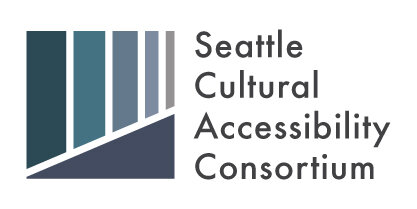Accessibility Is an Opportunity for Creativity
An interview with Sean Marihugh, Senior Program Manager, Microsoft
Sean Marihugh (he/him) is a white male with long curly brown hair and a mustache, and is seated in a power wheelchair.
We’re excited to have Sean Marihugh (he/him), senior program manager at Microsoft, as one of our speakers at Jump Into Accessibility: A Deep Dive Day! Sean, a white male with long curly brown hair and a mustache, uses a power wheelchair and brings a wealth of experience advocating for inclusive spaces for individuals with disabilities.
Learn about Sean’s experience with disability and perspective on accessibility below, then join us on November 19th to hear from Sean during the presentation Building Relationships with People with Disabilities.
What do you wish more people understood about creating inclusive spaces for individuals with disabilities?
For spaces to truly be inclusive, we must do this in partnership with the community we want to include. Being rooted in authentic disability experiences helps us avoid assumptions. People with disabilities should also be staff, leaders, and decision makers, not just users or participants.
Can you share an example of a time when you felt truly supported or accommodated in a space, and what made that experience meaningful?
The Whistler Public Library in Whistler, BC is a great example. Not only is the space itself inclusive for wheelchair users like myself, but the library director is a huge advocate for accessibility and brings in community members to give feedback, and even shape their 5 year planning cycles to ensure accessibility is considered early. They always have a growth mindset and are willing to find new and creative ways to include people - whether that’s adjusted hours to reduce sensory overload, or ensuring their maker spaces are accessible. Libraries are multi-use spaces, and it’s critical that each use case be accessible.
What barriers to access do you encounter most frequently, and how do you think they could be addressed or removed?
I use a power wheelchair, and I often find barriers with entrances and restrooms. Doors can be heavy, and soap dispensers and sinks can be out of my reach. Most places are unaware that self-closing doors can be adjusted to reduce tension - a simple and inexpensive change to increase accessibility.
Also, automatic door openers are often blocked by trash bins or other obstacles. Consider relocating, and even better, replacing with a vertical bar opener, which can be used by the broadest range of people.
In what ways do you think businesses or organizations can improve accessibility beyond just physical accommodations?
Everything we do has an impact on accessibility for people with disabilities. Language, policies, content (physical and digital), training, hiring practices, all affect how included someone feels in your space and community. People can bring their authentic selves when we intentionally consider all the ways we can impact accessibility.
What advice would you give to event organizers or public spaces when planning for inclusive accessibility?
Accessibility has a reputation of being expensive, because when it’s an afterthought, you need to retrofit. The best thing we can do is consider accessibility early, often, and in partnership with the disability community. Planning for accessibility from the beginning helps us meet users’ expectations and avoid costly and complex remediation after the fact.
What would you like to share or want people to know?
Disability is varied and deeply personal, and this breadth of experiences means accessibility is an opportunity for creativity. Accessibility requirements are simply the minimum bar - we have a responsibility to change the conversation to harness that creativity and include authentic disability perspectives.
For more about Sean, check out his website seanmarihugh.com and follow him on Instagram @skikend_with_sean.
To hear more from Sean and other experts in the field, join SCAC at the 2nd annual Deep Dive Day mini-conference! This active learning opportunity takes place on Tuesday, November 19 from 8:30 am-12:30 pm at the Woodland Park Zoo, with the goal to provide practical tools that cultural professionals can apply to their accessibility strategies.

